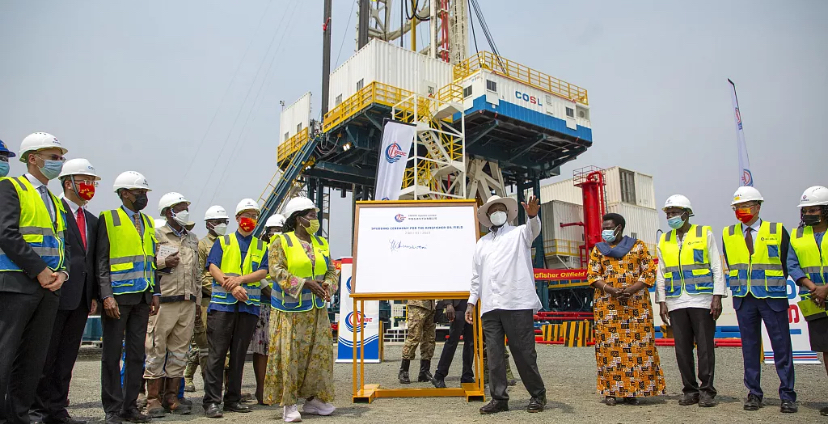Following the Final Investment Decision (FID) announcement on February 1, 2022, for Uganda’s flagship oil projects, Tilenga, Kingfisher, and the East African Crude Oil Pipeline (EACOP), the country’s oil and gas sector has achieved remarkable milestones.
At the ongoing 9th Uganda International Oil and Gas Summit (UIOGS2024) being held Wednesday, November 27, 2024, at Sheraton Hotel, Kampala, Lynda Biribonwa, the board chairperson of the Petroleum Authority of Uganda (PAU), outlined the sector’s progress and transformative potential.
“By the end of 2023, investment in Uganda’s oil and gas sector had exceeded $7.5 billion, marking a major milestone for our economy,” Biribonwa revealed.
She said this surge saw annual Foreign Direct Investment (FDI) rise from $1.4 billion in 2022 to $3 billion by April 2024, driven primarily by oil and gas activities.
According to Biribonwa, the sector has already created significant employment opportunities.
“By June 2024, the oil and gas industry employed 14,910 people, with 90% (13,389) being Ugandan nationals and 34.5% (5,152) hailing from project-hosting regions. Employment is expected to peak at 15,000 workers in late 2024 and early 2025,” she said.
“Additionally, construction of the EACOP is supported by 17 camp sites (5 in Uganda and 12 in Tanzania), six pump stations (2 in Uganda, 4 in Tanzania), and two pressure reduction stations (both in Tanzania). Four rigs have also been deployed, with three operating in the Tilenga project and one in Kingfisher,” Biribonwa elaborated.
Over $7 billion in contracts have been approved, with 26% ($1.8 billion) earmarked for Ugandan companies as direct contractors or subcontractors. To regulate and streamline access to these opportunities, the PAU established the National Supplier Database (NSD), ensuring local participation in the sector’s growth.
Training and capacity-building initiatives have also been pivotal. Nearly 300 government officials have been trained in petroleum engineering, geology, taxation, and more.
Collaborations with the Ministry of Education have led to the establishment of institutions like Uganda Petroleum Institute Kigumba, while over 14,000 Ugandans have received certifications in welding, electricals, and heavy vehicle operations.
The Workforce Skills Development Strategy and Plan (WSDSP) ensures Ugandans are equipped with internationally recognized qualifications like City and Guilds and OPITO certifications.
According to Biribonwa, as oil production begins, the government is projected to earn $1.5–2 billion annually over the next 25 years, providing a vital source of funding for investments in other sectors such as infrastructure, education, and health.
“These statistics highlight the prosperity already being delivered by the oil sector, even before first oil,” Biribonwa emphasized.
Uganda’s oil and gas sector, with its current progress, promises to position the country as a regional energy hub while delivering long-term benefits to Ugandans.
